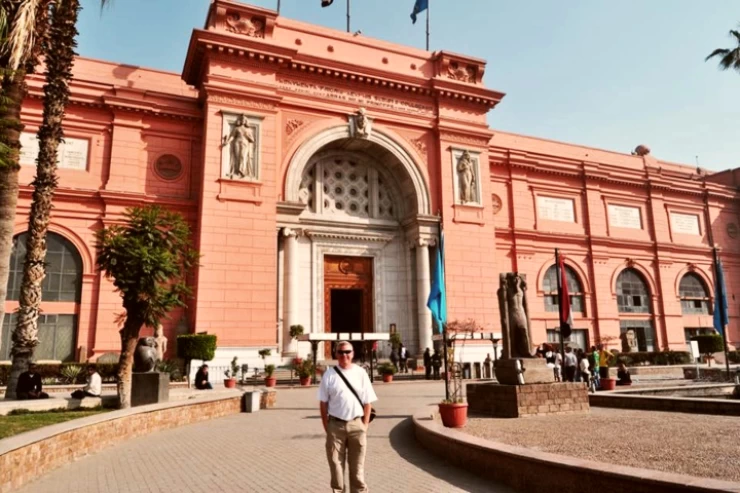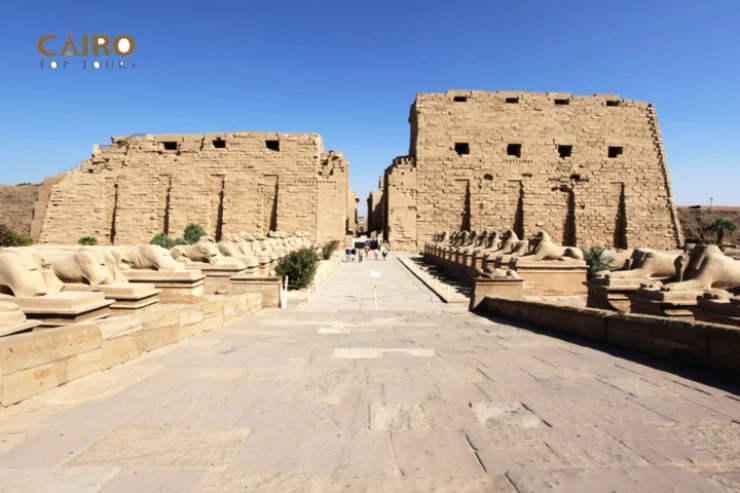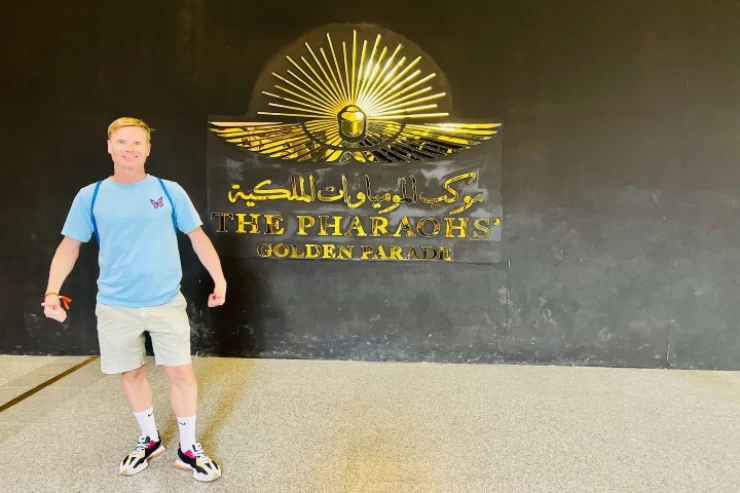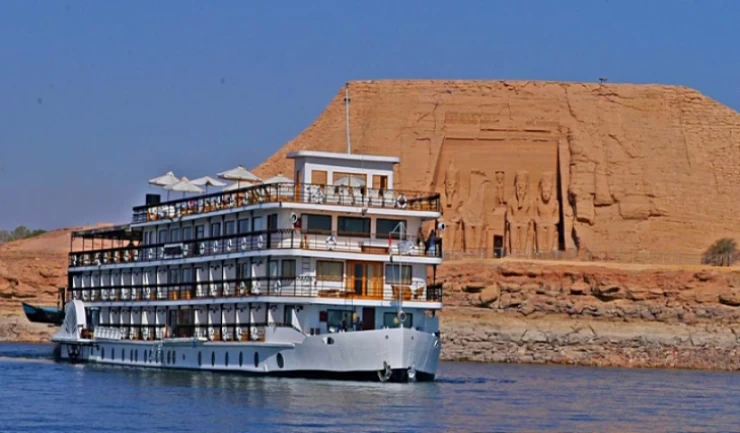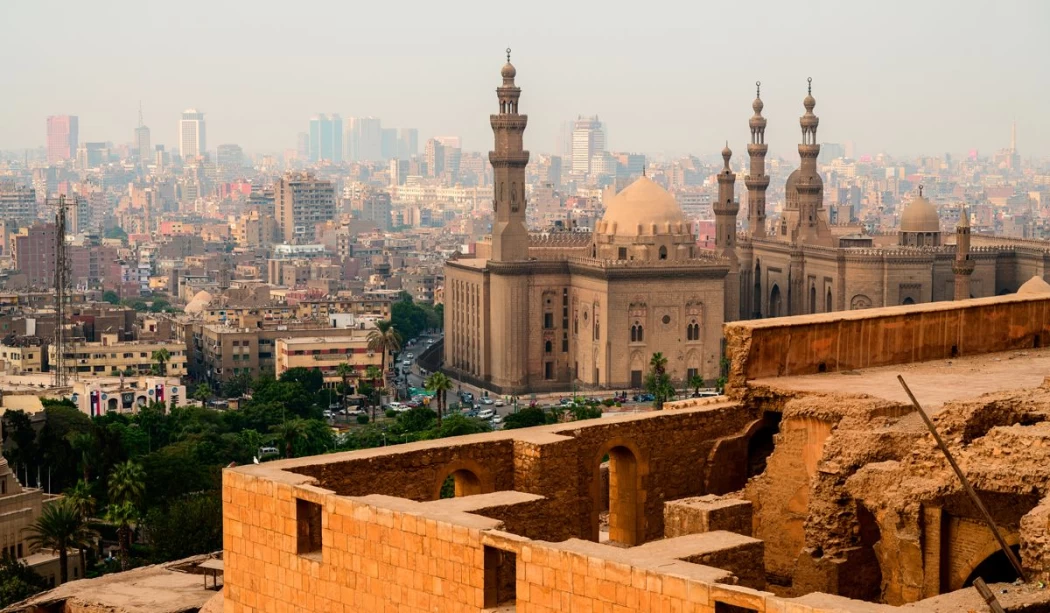
Basic Egyptian Arabic Phrases& Words to Sound Local
Egyptians have a unique style of saying and doing things that you just cannot find anywhere else, making Egyptian colloquial Arabic distinct from other Arabic dialects.
When choosing Egypt as your trip destination, learning a little Egyptian Arabic will go a long way and maybe save you money as well during your Egypt group tours. Egyptians are known for being vivacious and happy people.
Egypt has a sizable population of 98,42 million people and is still growing. Only a small portion of this population speaks English, though it is very common to find Egyptians who work in tourism who speak more than three languages fluently. Because of this, communication can be challenging at times. Therefore, learning a little Arabic is ideal and will probably be a lot of fun because Egyptian Arabic is a lovely language and not at all difficult.
So, as you prepare for your Egypt travel packages to the land of the pharaohs, what Egyptian Arabic should you learn?
Here is a list of some sentences and words that you should definitely learn during your Egypt day tours:
As-aalaam alaikum: peace be upon you
this all-purpose greeting is nearly universally well welcomed and can be abbreviated to just "salaam" (peace), whether you're visiting the vibrant spice markets or meeting your guide for an afternoon exploring during your Cairo day tours of the Great Pyramids at Giza. Even if you have to switch to English later, beginning your talk with a local greeting shows that you are respectful and friendly. "Wa alaikum salaam" (peace be upon you as well) is the proper response.
Sabah al-khair: good morning
Cairo is vibrant long into the night. People of all ages spend hours mingling over Turkish coffee, backgammon, and selfies. Outdoor cafes appear to sprout up from the sidewalk as soon as dusk falls. The call to prayer reverberates through the streets immediately after the sun rises over the east bank of the Nile following each busy night. Cairo is peaceful this morning as the city waits for the heat of the day to arrive. On your approach to breakfast, you might say "Sabah al-khair" to your neighbor and receive a groggy "Sabah al-noor" (morning light).
Shukran: thank you
Knowing how to say "thank you" is crucial for a traveler no matter where they go, and doing so in Egypt is especially important. Fortunately, it's a simple term that can be used whenever you want to show thanks, whether you're ordering fresh mango juice or getting your ticket stamped on your way to a tomb or temple during your Luxor day tours. You're likely to receive a heartfelt "you're welcome" in return.
Lazeeza: Delicious
keep this one close by since there is only one word to describe the crunchy fava bean falafel, fresh tahini that can be poured over anything and everything during your Egypt classic tours, and the grilled tomatoes and eggplant that have been marinated in olive oil. Try the ultimate comfort food, koshary, a regional delicacy made of rice, pasta, lentils, and chickpeas that is topped with tomato sauce, fried onions, and a vinegar-and-garlic dressing. Lazeeza, for sure.
Jameela: beautiful
Egypt's famous river, the Nile, covers the entire length of the country, and sailing it is still one of the greatest ways with our Egypt Nile cruise tours to observe the everyday rhythms of local life. From a ship, you can see how lush marshes give way to productive farming and neat rows of date palms. The gorgeous landscape, which is every shade of green, is rendered even more stunning by the ominous brown desert in the background. It is simple to understand why people choose to live in the river valley since it is completely Jameela.
Insha Allah: God willing
In Egypt, this statement is frequently used in place of a simple yes or no to respond to various kinds of questions. Will tomorrow's weather be pleasant? Allah is willing. Will the ship set sail on schedule? Allah is willing. The response to even a simple farewell like "see you tomorrow" is "Insha Allah." Although the expression appears to imply that nothing occurs outside of God's will, in reality, it permits the user to express their expectations that something might occur. You'll hear the expression everywhere once you learn it.
Yalla: let’s go
The best part of Egypt tours for many tourists is hiring an Egyptologist guide. Each new monument is contextualized and interpreted with competence, sensitivity, and critical thought around what these places signify for Egyptians and for the rest of the globe when you are exploring with one of these experts. When traveling with such guides, anticipate each morning to begin with a description of what you might see and end with a short "yalla" (let's go). It's a phrase that will soon be linked to the ecstatic hope of novel encounters and expanded understanding. Yalla!
Egyptian Arabic history
The Coptic language, which was spoken in Egypt before the Islamic invasions of the 7th century, has had the earliest influence on Egyptian Arabic. Although Coptic doesn't have much vocabulary that a beginner learning Egyptian Arabic would encounter, some academics believe that Coptic influence is responsible for the odd grammatical traits that distinguish Egyptian Arabic from both the Modern Standard Arabic language (MSA) and other dialects.
These Egyptian Arabic phrases are a start, but they won't keep you going forever (you'll eventually want to expand your vocabulary). Now that you have the fundamental knowledge, you can interact with Egyptians and understand some of what they say.







